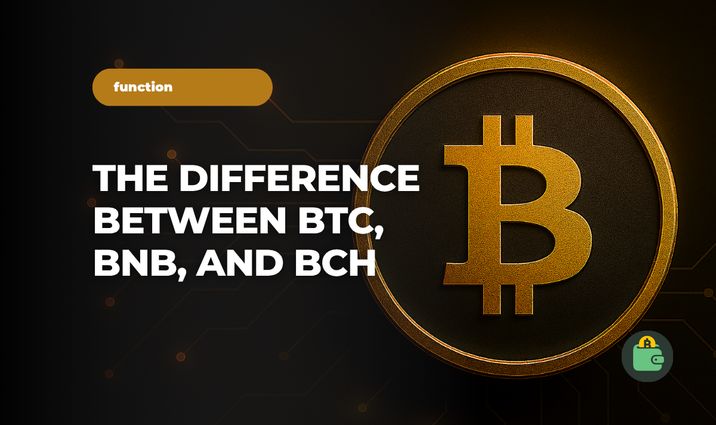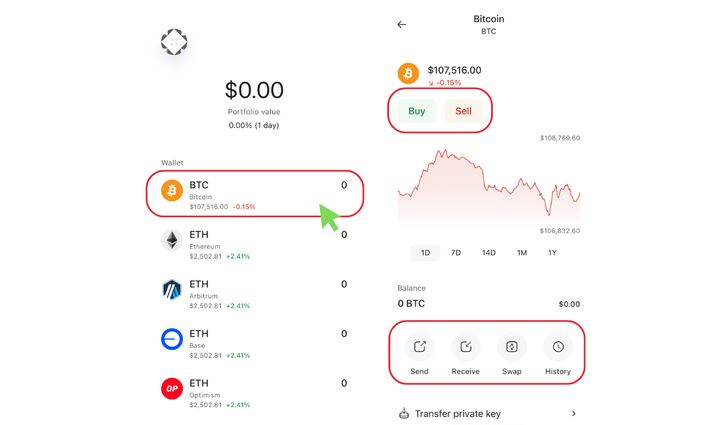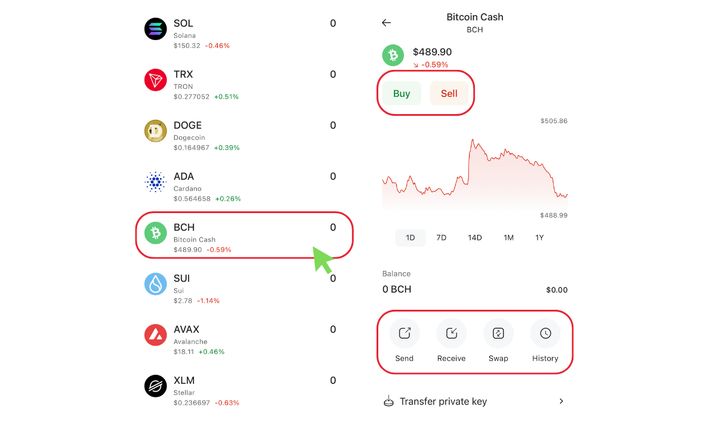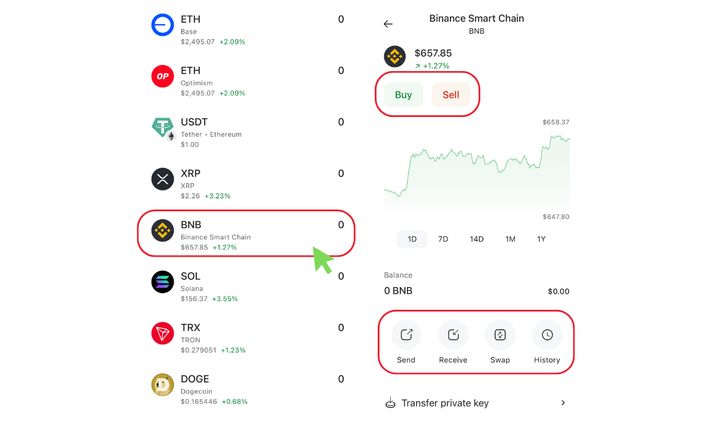BTC vs BCH vs BNB: Which Cryptocurrency Is Right for You?

Sometimes, crypto beginners confuse these coins because they have similar names and functions. In this article, we are not afraid to ask the “basic” questions and get real about BTC, BNB, and BCH 💸 Stay tuned — it is going to be clear and interesting.
Exploring Bitcoin (BTC) and What It Offers
A lot of articles on the internet talk about what Bitcoin is. So we are going to focus on the user experience. Bitcoin is the first cryptocurrency that appeared on the crypto market in 2009. Today, it’s the most valuable and widely recognized cryptocurrency in the world.
However, it is considered controversial because of the restrictions on how it can be used. For example, as of Monday, June 30, Bitcoin was trading at around $107,702. It’s the highest-priced cryptocurrency on the market.
Technologically, Bitcoin is not very innovative. Of course, at the time of its launch, Bitcoin was among the most advanced blockchain innovations. But today, the coin has a 1MB block size limit — restricting its capacity to just 7 transactions per second. All of this requires a lot of time, energy and money.
Of course, Coin Wallet supports Bitcoin — you can find it in our app or on the web.

At the same time, Bitcoin is valued for its commitment to decentralization and strong security. But its limited block size is exactly what led to the creation of Bitcoin Cash (BCH).
What is Bitcoin Cash (BCH)?
Bitcoin Cash is a faster and cheaper alternative to Bitcoin. It was created in 2017 when Bitcoin underwent a hard fork. This led to disagreements among developers and the community over block size limits and ideological differences. As a result, two separate teams created their own coins based on Bitcoin.
Bitcoin’s main issues include the 1MB block size limit, slow transaction speed, and long confirmation times — typically around 10 minutes. After the hard fork, developers created Bitcoin Cash specifically to solve these problems.
For example, Bitcoin processes about 7 on-chain transactions per second, while Bitcoin Cash can handle over 100. The fees are also different: the average Bitcoin fee is around $0.19 (≈ 0.00000172 BTC), while the Bitcoin Cash fee is effectively zero — approximately 0.0000026 BCH.
It's worth noting, the main similarity of both coins is their consensus algorithm. Bitcoin and Bitcoin Cash use the Proof-of-Work consensus — the miners of these networks solve cryptographic problems by adding new blocks and securing the blockchain. They also share a hard cap of 21 million coins and a similar mining process, which allowed BCH to initially use the same infrastructure as BTC.
However, the main difference between these coins is that the crypto community uses them for different tasks. Bitcoin is considered “digital gold,” and many people choose to hold it as a way to store and protect their assets. Unfortunately, this isn’t always effective — especially during periods of geopolitical instability.
Bitcoin Cash is more flexible and is commonly used for everyday transactions, including microtransactions. Users often call it “digital money.”
An important detail is that Bitcoin Cash uses a different address format (CashAddr) to avoid confusion with BTC addresses, and modern wallets handle it automatically.
Basically, Bitcoin Cash is available on most major platforms and, of course, on Coin Wallet. With its user-friendly interface, Coin Wallet makes it easy to access and manage your Bitcoin Cash anytime. Buy, sell, send, receive, and swap Bitcoin Cash with Coin Wallet. Just find Bitcoin Cash in the list, tap on it, and choose the action you want to do.

What is Binance Coin (BNB)?
Binance Coin (BNB) is a cryptocurrency that can be used to trade and pay fees on the Binance cryptocurrency exchange. In other words, BNB fuels the BNB Chain ecosystem. It's tradable just like any cryptocurrency and is used in many applications across different industries.
BNB is not related to Bitcoin or Bitcoin Cash — it’s a separate coin with a different purpose.
Like any cryptocurrency, Binance Coin comes with its own pros and cons. BNB is used across the Binance ecosystem to pay for apps, services, and transaction fees. Unlike Bitcoin and Bitcoin Cash, Binance Coin supports staking.
Binance Coin runs on its own BNB Chain network, using the Proof-of-Staked Authority (PoSA) consensus — a hybrid of delegated proof-of-stake and proof-of-authority models. On the BNB network, a limited number of validators — selected through staking and influenced by Binance as an organization — are responsible for validating blocks. This design enables high throughput but comes at the cost of reduced decentralization compared to Bitcoin.
Basically, BNB is widely supported by wallets, exchanges, and other crypto platforms. You can also use it to pay for goods and services globally.
There is no mining or inflation in the BNB Chain — new coins are not issued for block rewards. Instead, validators earn transaction fees, and a portion of BNB is regularly burned, reducing the total supply.
As a result, the BNB Chain processes around 45 on-chain transactions per second, with a block time of just 3 seconds. Moreover, BNB fees are slightly lower than those in Bitcoin Cash — around $0.00 (≈ 0.0000021 BNB).
However, you don't need to be a Binance Exchange user to use Binance Coin, because BNB is available in Coin Wallet. To get started, just choose BNB from the coin list.

The Bottom Line
If you want to protect your assets — as much as possible in the current economic situation — Bitcoin is a solid choice. It is a powerful cryptocurrency with a strong reputation and global support.
But if you need to make daily payments or shop in both online and offline stores, then Bitcoin Cash is the better choice — it’s fast and affordable.
Finally, if you use Binance, BNB is the best option for paying fees and using services within the Binance ecosystem.
Coin Wallet supports all three coins and offers security, reliability, and convenience.